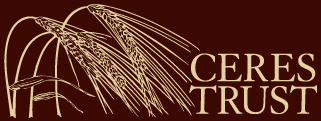Value-added Einkorn for Organic Production in the Great Plains Region
Report submitted by
- Abdullah Jaradat, USDA North Central Soil Conservation Research Laboratory, Morris, MN
- Dipak Santra, UNL Panhandle Research Extension Center, Scottsbluff, NE
- Steve Zwinger, NDSU Carrington Research Extension Center, Carrington, ND
- Joel Ransom, NDSU Extension, Fargo, ND
- Frank Kutka, Northern Plains Sustainable Agriculture Society, Lamoure, ND
Introduction:
The purpose of this project was to identify einkorn accessions with desirable traits for performance within organic farming and marketing systems in the Northern Great Plains. Einkorn (Triticum monococcum), a wheat species with hulls like barley, was cultivated thousands of years before the development of modern wheat. However, there is a renewed interest in einkorn because of its apparent salinity and other stress tolerance, its high nutritional quality, and its usually impressive flavor. Finding superior varieties of high value crops, such as einkorn, is a key approach to improve nutritional quality for consumer health and to improve farm profitability and soil health across the Great Plains region. Given the relatively limited experience with einkorn in our region and low number of varieties currently available, extensive evaluation of varieties was required in order to find those that might provide real benefits to both organic farmers and consumers. This report summarizes our study of agronomic traits, nutritional traits, and salinity tolerance of einkorn accessions selected from the collection deposited at the USDA National Small Grains Collection, Aberdeen, Idaho and several available in the specialty seed trade.
